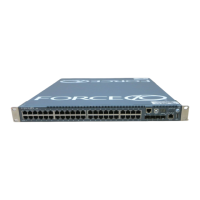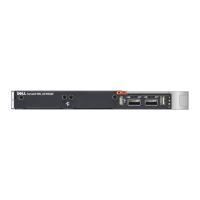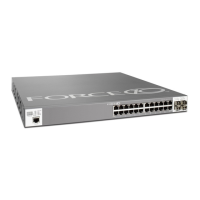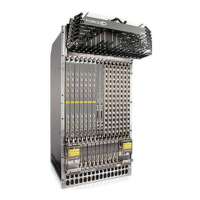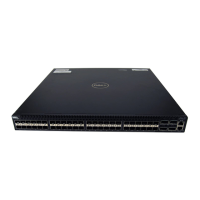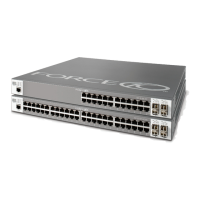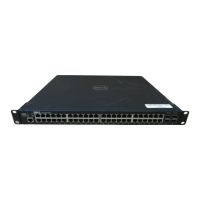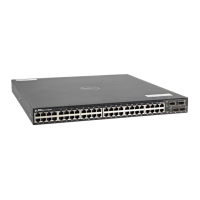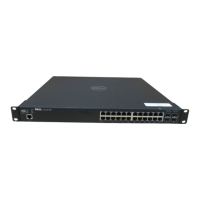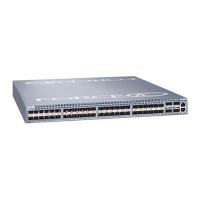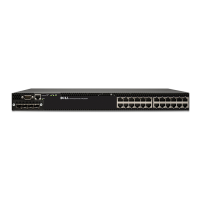Version 7.7.1.0 Removed from the C-Series.
Version 7.5.1.0 Introduced on the C-Series.
pre-Version
6.1.1.1
Introduced on the E-Series.
Usage
Information
NOTE: Per Port rate limit and rate police is supported for Layer 2 tagged and untagged
switched traffic and for Layer 3 traffic. Per VLAN rate limit and rate police is supported on
only tagged ports with Layer 2 switched traffic.
On one interface, you can configure the rate limit or rate police command for a
VLAN or you can configure the rate limit or the rate police command for the
interface. For each physical interface, you can configure six rate limit commands specifying
different VLANS.
If you receive the error message: %Error: Specified VLANs overlap with
existing config. after configuring VLANs in the rate police command, check to
see if the same VLANs are used in
rate limit command on other interfaces. To clear the
problem, remove the rate limit configuration(s) and re-configure the rate police
command. After the rate police command is configured, return to the other interfaces
and re-apply the
rate limit configuration.
rate police
Police the incoming traffic rate on the selected interface.
C-Series, E-Series, S-Series, Z-Series, S4810
Syntax
rate police [kbps] committed-rate [burst-KB] [peak [kbps] peak-
rate [burst-KB]] [vlan vlan-id]
Parameters
kbps Enter the keyword kbps to specify the rate limit in Kilobits per
second (Kbps). On C-Series and S-Series, make the following value a
multiple of 64. On the E-Series, Force10 recommends using a value
greater than or equal to 512 as lower values does not yield accurate
results. The range is 0 to 10000000. The default granularity is
Megabits per second (Mbps).
committed-rate
Enter the bandwidth in Mbps. The range is 0 to 10000.
burst-KB
(OPTIONAL) Enter the burst size in KB. The range is 16 to 200000. The
default is 50.
peak
peak-rate
(OPTIONAL) Enter the keyword peak followed by a number to specify
the peak rate in Mbps. The range is 0 to 10000.
vlan
vlan-id
(OPTIONAL) Enter the keyword vlan followed by a VLAN ID to police
traffic to those specific VLANs. The range is 1 to 4094.
1184
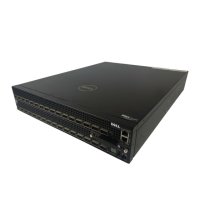
